March 6, 2022
Ah…hubris.
Despite sounding like some kind of Middle Eastern chickpea spread meant to be consumed with pita bread and olives, hubris (not hummus!) is instead derived from an Ancient Greek word meaning “pride, insolence or outrage,” and generally describes a personality quality of excessive pride or dangerous overconfidence, often in combination with extreme arrogance.
From Putin's recent display of strongman hubris in Russia's attack of Ukraine to former President Trump's cocksure self-confidence to arrogant Hollywood celebrities to that character on Twitter you may have recently whittled away an hour of your life you'll never get back arguing with about the true nature of global warming, you've no doubt run into a few folks who seem to be seething with hubris or at least displaying notable touches of it here and there.
Hubris goes by other terms, names, and identities too.
For example, what do you call people that think they're always right?
You can call them a narcissist. Narcissists have a distorted and inflated sense of self. They generally have a very difficult time seeing others' points of view or seeing flaws in their own thinking.
Then there's the know-it-all blog commenter.
The pedantic, infallible, pompous, irritatingly grand, solemn, and self-important podcaster.
The pretentious and condescending YouTube personality who likes to host debates or take-downs of those with opposing views.
The self-righteous, sanctimonious, and arrogant Instagram meme poster.
The smarty-pants, smart-aleck troll.
But there's also the rare instance in which someone seems to display hubris and seems to always think they are right…
…and they are indeed nearly always right.
We call these folks geniuses, polymaths, Einsteins, sages, and gurus, but they're pretty few-and-far-between, and most people who think they fit into this category of someone who can certifiably be correct 99% of the time are instead quite the opposite, and typically a hubris-packed, smoke-filled, self-proclaimed “expert” who is in fact anything but a graceful, humble, knowledge-seeking, guiding light to the world.
So why am I telling you all this?
I'm Too Woo
Well, I'm not sure if you've noticed, but over the past couple of decades of producing the podcast, writing articles, authoring books, filming videos, and engaging in my usual, ever-curious blend of immersive journalism, guinea-pigging, biohacking, researching, reading, interviewing, testing and self-quantifying, I've certainly shifted quite notably in terms of the scope of content I cover.
For example, in the very early days of my writing and recording, I stuck to the basics…
…what's a carb?
…what's a fat?
…what's a protein?
…how can you benchpress more weight?
…how can you run faster?
…how long should you hold a stretch?
After all, at the time I started it, my podcast was one of just three fitness podcasts in the entire world (and there was perhaps just a couple hundred podcasts total), and so there were obviously many, many available topics to address that simply hadn't yet been addressed by me or anyone else.
But eventually, I began to learn more. A lot more. Heck, based on my Gallup strengths assessment, my major skills lie in the realm of very efficiently learning, “inputting” and researching information, then generating ideas and creations from and simultaneously teaching that information to others. This is quite likely why I have had my nose constantly buried in a book since I was a tiny boy, why I read an average of three to five books a week now (along with countless research articles and white papers), and why I'm not happy just keeping this information to myself but rather, sharing it with people like you.
As I have continued to embrace this never-ending thirst for knowledge and continued to educate myself, and as I have covered more and more of the basic topics (e.g. eating healthy and exercising) early in my creation processes and subsequently found it necessary to shift to more intermediate and advanced topics (e.g. light, sound, air, magnetism, toxins, gut, hormones, sleep, mental health, etc., etc.), I've found myself taking some deep dives down fascinating rabbit holes that have sometimes gotten me into hot water.
For example, instead of writing an article about where to hold the bar when bench pressing, I now write instead about something like the use of electrical muscle stimulation (EMS) for higher motor unit recruitment of pectoralis muscles.
Or instead of informing you on the potential cardiovascular risks of eating french fries at McDonald's, I now interview some fringe physician who has produced data that frequent exposure to infrared light, a robust sauna practice, and high intake of nitrate-rich foods can increase nitric oxide, decrease blood pressure, and lower all-cause risk of mortality from heart disease.
Or instead of telling you that you should sleep more to help your immune system get stronger, I might film a video in which I'm showing you how to circulate icy cold water under your top sheet, install a kill switch for dirty electricity in the bedroom, and replace all your current bedroom lights with red incandescent bulbs.
Quite obviously, anytime I've begun to explore all nooks and crannies of a particular topic, such as, say, “healthy lighting,” I risk getting into the category that many may define as “woo,” which, short for “woo-woo,” is defined as unconventional, outside-the-box or unorthodox beliefs widely regarded as having little or no scientific basis – especially those relating to spirituality, mysticism, or alternative medicine.
So while I could certainly, when writing an article or recording a podcast interview about a topic like healthy lighting, simply stop at advising you to, say, not look at your bright phone for the hour before bed, I instead find myself also informing you on fringe concepts such as the light-producing and photon-absorbing capability of human mitochondria, the photonic energy absorbed by plants that dictate eating fresh vegetables is better from an energy frequency standpoint compared to eating one-month-old packaged and processed vegetables, and perhaps even the results of gas-discharge visualization camera analysis of the light coming off a human being who is in a good mood vs. the light coming off a human being who is in a bad mood.
See what I mean here?
If you're intensely curious about a topic, you're pretty likely to get into woo-woo waters that don't necessarily involve topics other folks are talking about quite so much, or topics that the government or the educational system or your friends on Twitter have yet accepted as status quo, and perhaps even find somewhat offensive. It's just like the ocean: when one begins to go from shallow to deep, one risks experiencing a far greater variety of strange, funny-looking, and arguably more interesting, novel, helpful, or yet-to-be-discovered marine creatures hovering near the bottom of the depths.
So yeah, I'm woo.
Furthermore, I don't think that it helps much that I come from a reformed Protestant straight-laced, logical, heady, rational, Christian background, yet I simultaneously embrace elements of mystical Christianity, plant medicine, hands-on healings, the ancient mysteries of the Essenes and Dead Sea Scrolls (no, no, I'm definitely not Gnostic), etc. This kind of gets me into hot water with both the Christians who raise an eyebrow at what is often perceived as pagan or Karmic-like religious concepts as well as with non-Christians who ridicule my “blind faith” in things like an unseen God or Creation.
But—and I'm saying this in full humbleness, and simply have to make the point—many of the so-called “woo concepts” I've brought up on my show in the past have eventually turned out to be orthodox, status-quo, generally accepted principles of health, fitness, or nutrition science around five to ten years later, including my ancient advice to “eat the yolks” along with the egg whites (a recommendation that caused many to accuse me of inducing heart disease in my poor podcast listeners), to immerse regularly in cold water to lose weight faster (once considered to be only something that silly, bearded yogis in the Himalayas do), or to pray and show gratefulness before a meal so that you are in a better constitution to receive and absorb nutrients while eating (obviously a highly offensive statement that indicates food somehow “detects” your mood state or worse yet, that there's an imaginary bearded old-man fairy in the sky listening to you).
So when I get called out (as seems to be occurring with increasing frequency of late), on even entertaining the idea that a virus may not exist, or that a digital currency may eventually replace fiat currency, or that one could change the flavor of a glass of water or a glass of wine with so-called “quantum energy,” it really doesn't bother me too much, because I've seen dozens and dozens of times that within just a few short months or years, that same idea becomes research, proven and eventually widely accepted as an orthodox principle.
This phenomenon of vilifying ideas that rub us the wrong way or defy the status quo, then later accepting those same ideas as a general truth, is actually quite a common occurrence, particularly in the history of science, health, and medicine. You may also have noticed if you pay attention, that those folks who “call out” anyone who presents an idea that resembles anything like a fish swimming upstream, tend to be folks who one might associate with the same type of hubristic tendencies I alluded to earlier (you can spend a bit of time on Twitter to see what I mean).
People We Thought Were Crazy (Who Later Turned Out Not To Be)
I'm not alone.
If you get ridiculed or questioned on your own beliefs about something like the health effects of structured water, the legitimacy of sound medicine with something like didgeridoos or tuning forks, quantum energy healing principles, or perhaps simply skipping the gym to instead go outside in your barefoot and soak up the sunshine for a touch of earth and photonic energy absorption (you freakin' kook)…
…you're not alone either.
At many junctures throughout history, proponents of revolutionary or unorthodox ideas have inevitably encountered criticism and pushback from “the establishment.” For illustrative purposes, allow me to introduce you to a few famous physicians, scientists, and medical researchers who were first considered bat-sh*t crazy when they first introduced their findings to the scientific world but were later found to be right.
Meet William Harvey. Dr. Harvey was a 17th century English physician who was the first to describe blood circulation to the heart, brain, and body in complete detail, although it took years for the mainstream scientific community to accept his ideas. In 1628, he published De Motu Cordis (“On the Motion of the Heart and Blood) at a Frankfurt book fair, describing the structure of the heart and arteries, and presenting the novel theory that blood passes through the heart, and not through the liver as previously believed.
At the time that Harvey proposed this, the 2nd-century philosopher and physician Galen was considered to be the authority on most matters of physiology, including circulation. Galen believed that the liver creates blood from food, then sends it through the left side of the heart and lungs, and despite this being eventually proven incorrect, people still held strong to his beliefs, even 1,500 years later. As a result, Harvey’s findings were ridiculed, though if we fast forward a few hundred years, you'd now be laughed at for proposing that blood doesn't pass through the heart (kind of like my podcast guests Dr. Thomas Cowan and Stephen Hussey are currently getting laughed at for proposing on my podcast that the heart is not a pump). In his later years, after he was ostracized by the scientific world, Harvey eventually became a recluse who lived life in private and reportedly quipped:
“Much better is it oftentimes to grow wise at home and in private than by publishing what you have amassed with infinite labor, to stir up tempests that may rob you of peace and quiet for the rest of your days.”
Poor fella.
Next, there's Gregor Mendel. You may remember Gregor Mendel from your elementary school science class. Known as the father of modern genetics, Mendel was an Augustinian friar who also dabbled in the crossbreeding of pea plants during his spare time. He eventually came up with terms such as “recessive” and “dominant” in reference to genes, but these concepts were mostly kept to himself and not fully accepted until after his death, because scientists believed at that time that traits were passed down to the next generations through a basic mechanism called “blended inheritance,” in which genes are just averaged and mixed together. It was until several decades after Mendel's 1884 death that his ideas were accepted as orthodoxy in modern genetics. But in his day, he was just a crazy lunatic monk who played too much with peas.
Next up is Ignaz Semmelweis, who was a Hungarian physician that I'm guessing you've probably heard of, because his story is somewhat well known. Dr. Semmelweis is the guy who noticed that the Vienna General Hospital’s medical students were proceeding straight from autopsying contaminated cadavers straight to delivering babies, and based on his theory that excess uncleanliness may have been resulting in unnecessary deaths due to infection in new mothers, he astutely noted that when he recommended doctors and midwives to wash their hands in chlorine lime solutions in between the autopsy and the deliveries, the mortality rates magically decreased by 1 to 2 percent.
Now of course basic hygiene — such as washing your hands or using antibacterial sanitizer — is now considered commonplace, and a standard, required protocol in hospitals. But before the 19th century, doctors weren’t aware that bacteria and other germs could spread through lack of sanitation. As a matter of fact, at the time, infectious diseases were typically treated by bloodletting, and illness was believed to be caused by “bad air.” So the news of washing hands didn’t really go over that well in the rest of Europe. Many doctors were actually offended that Semmelweis saw them as “dirty,” and their inflated egos (hubris?) led them to believe that disease and unnecessary deaths couldn’t possibly be due to their uncleanliness. Furthermore, because Semmelweis was never able to publish an official “scientific report” on why sanitation could be life-saving, the medical world totally rejected him, viewing him as an embarrassment.
Sadly, this rejection eventually drove him to alcoholism, depression, and isolation. Toward the end of his life, he was sent to a mental asylum, where he died alone, isolated, vilified, scapegoated, and forgotten by his peers. Then – you guessed it- decades later, germ theory emerged as accepted science with the likes of Louis Pasteur and Joseph Lister beginning to endorse practicing medicine with hygienic procedures and proving that old, crazy Semmelweis’ nuts job hand washing idea indeed saved lives.
William Coley is a guy I've mentioned in the past on a few of my podcasts about cancer, including this one with the modern “crazy” unorthodox doctor Thomas Cowan. In the late 1800s, standard cancer treatment involved surgically cutting out tumors and cancerous tissue, and there was no chemotherapy, radiation, or cancer drugs. But Dr. Coley, who was a cancer researcher and bone surgeon at the New York Cancer Hospital, stumbled upon a strange discovery that would eventually pave the way for modern forms of cancer treatment that involve triggering the immune system to attack cancer cells. One of Coley’s patients began recovering from cancer after he was infected with Streptococcus pyogenes bacteria, which is the microbe that causes strep throat. Coley theorized that – highly counterintuitive compared to popular belief—post-surgical infections could actually help to defeat cancer by mobilizing the immune system. So he began experimenting with what eventually became known as “Coley’s toxins,” which were blends of dead bacteria that could be injected into cancer patients to trigger their immune systems. Although he kept a series of successful case reports on his controversial approach, most of his scientific peers rejected his ideas as “crazy and dangerous.” So Coley died in 1936, never knowing that his Coley’s toxins would lead to the birth of modern cancer immunotherapy.
In 1912, German geophysicist and meteorologist Alfred Wegener proposed the strange idea that Earth's continents had once been a single landmass that had drifted apart. He noticed that the continents could be more or less fit together, like a puzzle, and also noted that there were fossil plants and animals that spanned these multiple continents. He even pointed out geological features that oddly matched when the continents were put together, such as the mountain ranges in America and Scotland, and rock stratas in South Africa and Brazil. He was actually accused of having contracted “moving crust disease and wandering pole plague” and his work was dismissed by his scientific peers as “delirious ravings” since geologists at that time still clung to the notion that the continents had been connected by land bridges, and the mountains created by a shrinking Earth. It wasn't until the 1960s when scientists discovered evidence of seafloor spreading and tectonic plate movement. Though Wegener didn't live to see it, his hair-brained idea is now accepted science, and we call his massive early continent “Pangaea.”
In the year 1964, a scientist by the name of George Zweig was a young graduate student, unpublished and unproven, working at a particle research center in Geneva. His paper on quarks, now known as a type of elementary particle and a fundamental constituent of matter, didn't quite meet scientific standards in the day, and thus he was called crazy for his insane notion of invisible particles (sound familar? *cough* quantum physics *cough*). Of course, eventually, the science world came around to accept the idea that quarks exist, but in his day, Zweig was blackballed by academia and accused of being a charlatan.
Starting out as an obscure Australian physician in the 1980s, Dr. Barry Marshall was researching how Helicobacter pylori bacteria invaded the stomach to potentially cause ulcers and stomach cancer. But at that time, doctors believed ulcers were only caused by stress and had no clue about the role that H. pylori played in ulcer formation. When Marshall argued antibiotics should be considered as a medicine to treat ulcers, his fellow physicians dismissed him and even barred him from running any human experiments. So crazy ol' Marshall instead took H. pylori from a patient’s infected stomach, mixed it into a broth, and drank it. After getting ill (as he predicted), he biopsied his gut, cultured the bacteria, and proved that H. pylori was indeed responsible for ulcers. I suppose one could very much classify him as an early day, self-quantifying, guinea-pig biohacker, huh?
Finally, there's the theory of heliocentrism, which is the idea that the Earth rotates around the Sun, (rather than the Sun orbiting Earth, which is known as geocentrism). Nicolaus Copernicus put this theory forward in the first half of the 16th century, but it wasn't long before religious leaders like Martin Luther and the Catholic church began criticizing the work since most of the educated world believed in geocentrism. Copernicus's cause was picked up by Italian astronomer Galileo Galilei in the 17th century. Using observational evidence, Galileo presented his case for what was then known as Copernicanism, which brought him before the Inquisition for his heretical views, since, according to the Bible, the world could simply not be moved. In 1616, Copernicanism was banned, and Galileo was ordered “to abstain completely from teaching or defending this doctrine and opinion or from discussing it… to abandon completely… the opinion that the Sun stands still at the centre of the world and the Earth moves, and henceforth not to hold, teach, or defend it in any way whatever, either orally or in writing.” In 1633, Galileo was convicted of heresy and proceeded to spend the rest of his poor life under house arrest. It wasn't until Isaac Newton wrote Philosophiæ Naturalis Principia Mathematica in 1697 that Copernicus and Galileo were considered to correct (although, inconveniently for Galileo, the Vatican didn't even apologize or pardon him until 1992, long after his death.
So yes, those are just a few scientists who were considered total morons, imbeciles, and scapegoated troublemakers in their time. It kinda makes you wonder who we are laughing at or vilifying now who may actually turn out to be correct, doesn't it?
What If We're Wrong?
So am I saying that I'm such a special snowflake that I truly believe that every last controversial scientist or physiologist I interview will eventually turn out to be a messiah of science, or that I'll always have the last laugh about fitness and nutrition no matter what, or that you should consider every idea I entertain on my podcast or elsewhere to be gospel truth, even if it hasn't yet been proven?
Absolutely not.
After all, that would be the ultimate example of hubris.
But I want to at least challenge you to maintain an open mind, and to practice the opposite of hubris yourself, which I'd generally categorize as having “humble curiosity,” which is I suppose simply a fancy way to define open-mindedness.
Now, I'm not saying you should be open-minded in a flaky, wishy-washy, easily influenced, unprincipled, believe-one-thing-one-day-and-another-thing-the-next mentality, but rather that you should be willing, should someone present a belief or idea or notion that doesn't agree with your perception of the way the world works, to at least entertain the idea that that other person could quite possibly be correct and you should at least entertain whatever notion they present to you with a healthy dose of humility and curiosity. That's my own personal approach to just about any debate, argument, book, podcast, discussion, or any other informational or social exchange, and I find that by operating in such a mode of humble curiosity, I actually tend to learn quite a bit, and because I'm not easily offended (since I've set aside any preconceived notions that I'm correct), it also makes the entire process of learning and discussing ideas far more enjoyable for me.
Here's another way to think about it…
…just assume for a moment that we've been wrong about a lot.
Yep, in the same way, you might look back at those silly bodybuilders in the '80s thinking they had fitness all figured out, or those folks traveling west in covered wagons who probably thought that a wagon and a few horses were easily the fastest way to get just about anywhere, or those surgeons who laughed at the notion of washing one's hands prior to ripping into a body with a scalpel, just fast forward one hundred years, and pretend you can look back at us poor, stupid ol' humans living in the ancient, imbecilic year of 2022.
Maybe they'll laugh at our own high-falootin' science a hundred years from now, in the same way, we now laugh at our ancestor's science a hundred years (or heck just forty years) back.
What if everything we know about the body is wrong? Set your ego aside for just a moment and imagine if everything we know about the body is wrong. Think back a hundred years ago. What did they believe with firm, unshaken conviction about the body? Then go back a hundred years before that, and ask yourself what they thought about the body? And what will folks think about us a hundred years from now?
Will they shake their heads at the absolute folly of us not realizing that cell phones and VR headsets next to our heads were responsible for a 2040 epidemic of brain cancer?
Will they chuckle at the folks who dismissed the idea of invisible particles or sound frequencies that could somehow affect a human organ, even though it couldn't be seen under a microscope?
Will they discover that the metabolism can turn fats can turn into proteins, or that Beyond Burgers cause heart disease, or that the brain can telepathically communicate and we just didn’t figure that out yet? Will they laugh at the clunky jet planes we climbed into before we discovered teleportation? Will they scoff at the notion of six senses after they discover we have twelve? Will warfare become a game of mind reading and remote viewing?
Maybe we need a bit more revision added to our tradition.
Maybe we need a bit more pragmatism added to our dogmatism.
Maybe we need some otherworldly added to our worldly.
What do you think?
Summary
And finally, here's what's important…
…I'll also readily admit (and be the first to admit) when I am or have been just plain ol', flat-out wrong.
For example, years ago, I used to teach that you could keep your metabolism elevated by eating six to ten small meals spread throughout the day, rather than what I called at the time a “sumo-wrestler” diet and a fast way to fat gain: eating just one to two large meals each day. Fast forward to the present day, and I've publicly admitted I was wrong about that, highlighting the new research that shows the benefits of time-restricted feeding, intermittent fasting, and even an OMAD (one meal a day) approach.
I also used to tell people that the best way to gain muscle was to absolutely “torch” one body part one day, just like a bodybuilder, then go to a different body part or parts the next day, and so on and so forth, in what is termed “body-part split training” (e.g. biceps/triceps one day, abs/low back/core the next day, legs the next day, chest/shoulders the next day, etc., etc.). Later, as more and more research piled up indicating that full-body workouts are more advantageous for overall metabolism and also for time management, and can even be superior to body-part split training for hormonal response to exercise and sometimes even muscle gain, I recognized the error of my ways and began to change the way I wrote out my workouts for my clients.
Quite notably, I also used to think that “exercise and a healthy diet” were the best ways to be healthy. But as I discovered more about blood and biomarkers, the electrical capacity of the human cells, the power of photobiomodulation and light therapy, the importance of the right type of hydration, etc. I realized that it turns out that to truly thrive, the body needs far more than just movement and the right kind of foods stuffed in its face. The human body also requires optimized sleep, proper breathing patterns, clean air, hot and cold, sunlight, a connection to the planet, love and relationships, self-actualization and purpose, customization of nutrient intake, and much more. So now I'm that “weird” guy who recommends people go do a sauna session and cold plunge a few times a week, catch some rays of sun every day, take a breathwork course, and do gratitude journaling each morning.
I could go on, but here's what I'm getting at…
When it comes to the ideas I entertain here on this website and elsewhere, I might be wrong about many things, but there's an outside chance that I might also be right. Either way, I'm committed to remaining open-minded and I'm certainly going to keep pushing the edge in my process of keeping both you and I just a touch outside our comfort zone in this journey of discovering how we can savor God's creation and fully love others while making maximum impact with our lives.
Sure, admitting I'm wrong sometimes gets me in hot water and often even gets me ridiculed, since many people assume when I change my mind about something that I must have sold out, or that I'm too flaky and wishy-washy, or that it's too difficult to “keep up” with my ever-changing and adjusting recommendations on everything from diets to workouts to biohacking.
But I think—and I hope you agree—that being ready and able to admit when you are wrong is a far better and more honest and humble way to live than to dogmatically insist that you are correct and to never change your ways (especially if some supplement you promote or diet book you wrote will stop making you money if you do admit you were wrong, which is all-too-common in the health industry!).
So I promise you continued radical honesty and raw authenticity and I also promise you that I never sell out. I thoroughly test and try everything I even think about promoting or introducing you to, and ultimately, I turn down about 90% of the stuff that gets “pitched” to me to “promote,” turn down about 99% of podcast guests and books that get sent my way, and don't wind up sharing the random hodge-podge of self-optimization items that arrive on my front doorstep to unbox and try because I'm simply not comfortable with the science or theory behind them. I'm super picky, I care deeply about my audience, and I am very careful about what I do or do not share with you, primarily making decisions based upon my own personal experience combined with a dive into the actual research behind anything and the feedback I am able to get from peers such as scientists and physicians who I know and trust.
After all, we're pioneers, you and I.
We're swimming upstream. We're unorthodox. We're outside-the-box thinkers. We're characters on the island of misfit toys. As the song in The Greatest Showman goes, “they may think we're crazy and they may think we've lost our minds, but we've got a million dreams.”
And life is just a bit more interesting, and definitely has more potential for lasting impact, when you think that way. You simply have to check your hubris at the door, and I wish more people were willing to do that.
Your turn. You with me? You willing to entertain the controversial and often “crazy” guests I have on my podcast, or the unorthodox notions I present in some of my articles? Are you willing to remain open-minded and curious? Leave your comments, questions, and feedback below. I read them all.



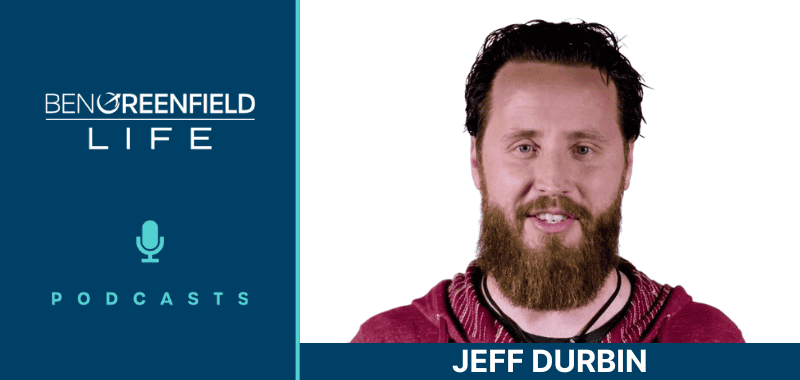




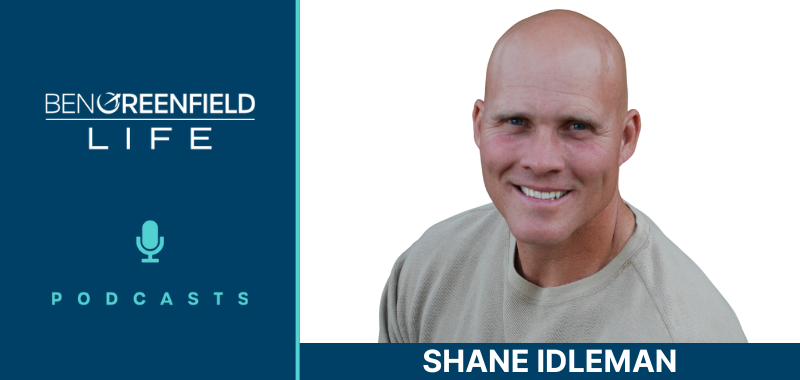
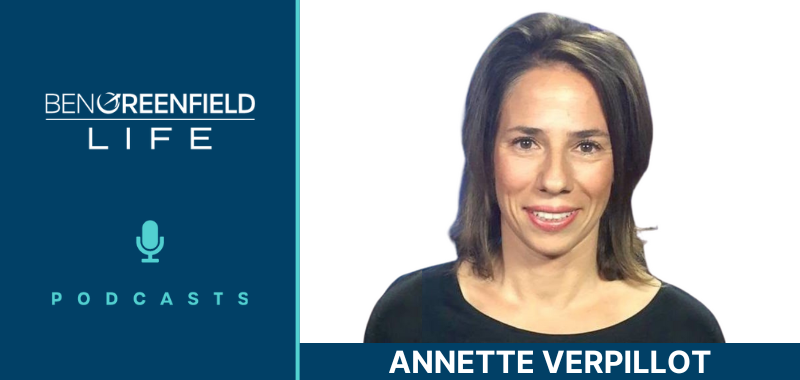
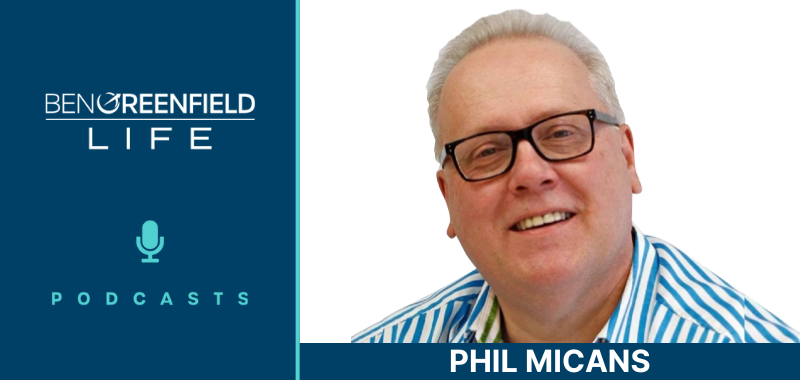
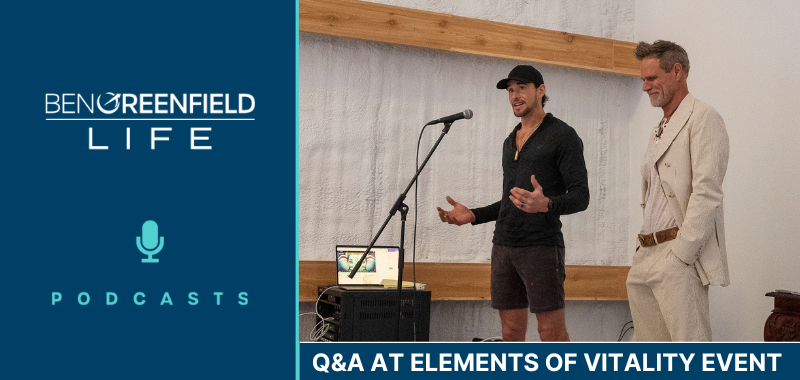

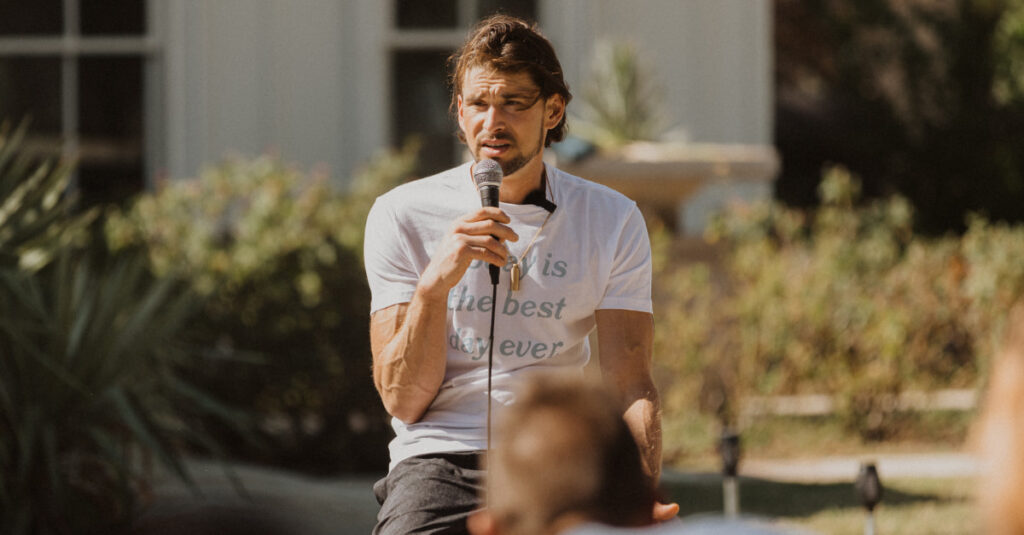
i’m all about the ‘Woo!’
If there’s no ‘woo’ then forget it!
I’m very grateful for all the “Woo” ideas you have shared. Just moments before I opened this article to read, my wife and I were discussing how happy we are that we are not like those around us exactly and really don’t have much of a desire to follow along with the crowd. Were it not for being increasingly more “woo” over the last 16 years (and especially the last two, I may have been dead by now.
Now I have a hyperbaric chamber, a sauna, a Biocharger, drink pure water, eat all organic and grass fed/pasture raised. We let our children direct their education and homeschool half of them.
When I meet people like you and me I say “woo hoo”.
Today my wife and I are getting 11 million mesenchymal stem cells each ( me for treatment and her for optimization). Over the last quarter I have reduced the oxidative stress on my red blood cells significantly and I’m thrilled!
Thanks for getting new “woo” ideas out and vetting and promoting people and organizations dedicated to truly improving health. If only large “trusted” 3-letter organizations could admit it when they are wrong like you and me… how many lives could be saved and how many more could be enhanced “woo” becoming recognized as true!
Spot on when it comes to 3-letter agencies needing to admit when they’re wrong, appreciate the feedback Chase.
Thank you Ben, a good read.
I'm glad you enjoyed it Karl!
I am totally with you and I think this such a beautiful post. My only disconnect with you is religion – I am atheist. I do not pretend to “know” I’m right, by any means. However, I have just never felt even the smallest hint that a Christian God may be real. I do not lay fault upon those who do. I concede we all must follow our own belief system. However, I would love to hear you have a podcast conversation with someone a lot like you who is also an atheist, and my hope is that the debate could yield some common ground. It would be very interesting and illuminating, especially if the conversation were not specifically about religion, per se, but if religion were a backdrop to other topics. For example, you draw a lot of meaning and sense of purpose from your belief in God – do you think you could arrive to a similar place without God? I don’t mean that in an antagonistic way – I’m just trying to see exactly what you are saying in the post above; can we try on different ideas and maintain the important aspects of our sense of self? I suggest this for selfish purposes, naturally! LOL! Thank you for all you do, Ben!
This is why i will always be following you and recommending your work to so many people <3 <3 <3 god bless you ben greenfield thank you for existing friend <3 <3 <3
Thank you for sharing this ‘woo’, in a sense it ligitimises the deep desire to dive deeper and know and experience more. It’s something I struggle with in terms of my journey.
Thank you for teaching and continually improving
I’m thankful for the opportunity to learn through you.
You’re helping us create better lives and allowing us to pass on the knowledge.
You're most welcome Weston! Thanks for the feedback!
…”Maybe we need to add otherworldly to our worldly”!!
Love it!!! So,so grateful for you and all the work and research and care that you put into your podcasts and writings. I believe that our collective purpose on earth is to evolve – get better, stronger, smarter with every generation that passes. Unfortunately that process is continually slowed by small minds with no vision. You have vision. And your work serves as a catalyst for our much needed evolution. If that’s considered ‘woo’, so be it! Thank you for existing!!!
Love whoo and mind expansion always excited to check on the next post. Everyone’s journey is different; thank goodness! Checking out new ideas that are considered fringe makes for interesting dinner conversations with my Babyboomer friends who have not heard of most concepts and ideas. Thanks for keeping me current. Deb B.
You bet! 💯💪
I consider myself open minded and a lifelong learner…I become excited to hear new ideas and concepts which is why I enjoy listening to your podcasts (every time I workout this is what I’m listening to) and reading your Sunday Ramblings. I have learned so much these past 4 plus years doing so, Ben & thank you for your dedication & care in advancing understanding of health for mind, body & soul. It is also satisfying to discover many of my own ideas I have continued despite conflicting advice from other “experts” (…eat the yolk…fasting…) are validated later on. An excellent read today!
Appreciate this Evelyn! Thanks for taking the time to write!
I started by reading your articles on SEALFIT because I was preparing to go to SEALFIT myself. I love your articles and podcasts and have tried a lot of the things you recommend. I have become more “woo” myself and I keep spending money on the products you recommend but it’s hard to put a price on your health and wellness. Keep it up man!
Thanks John! Indeed, a lot of people only think in terms of short-term “savings” rather than long-term investments, especially as it relates to their health
Wow – people actually still READ & WRITE, what a concept. 👏👏👏
Kudos for taking the time to share, BG.
A far cry from the Idiocracy-laced 20 second videos our brains currently seek, crave & desire.
Fitting for a blast from Byron Katie IMHO (that’s Humble in the acronym, by the way 😉):
“It’s not your job to like me – it’s mine”
Amen & peace out 👊🏽🙏🏼
I just want to say thanks so much for writing this. I’ve been telling the Semmelweis story a lot recently, given the current situation, and the importance of hand hygiene being mentioned so often. Especially to my family, to help them see that a lot of what they consider “woo-woo” in the things I am doing and reading about really do have scientific backing. It’s just that it doesn’t fit in with “eminence-based medicine”. What you’ve written here also encourages me not to become saddened or feel alone because I am the “weirdo”. The best “evidence” though, for those close to me, is to see the radical improvements in my life. And maybe I should follow Timothy Leary’s advice a little more and “Find the Others”.
Ben, This unique summary of your work is an inspiration to me to keep being different, researching, listening and trying new things so that I feel great and can openly share my love and joy with others. Thank you for being so open and sharing what you are doing. I have a tendency to keep these quirky ways (cold plunge, food experimentations, ozone, breathwork, meditation, etc) to myself, but want to be more open in the future and your openness is inspiring to me.
Also, is there anyway I can buy Puff the Magic Dragon with a credit card, PayPal or by writing a check? My grandson really liked Puff and wants to do the Art class with River. Please let me know! Thank you so much! Kathy
For the NFT art I think you're referring to for Puff (at http://www.GoGreenfields.com/bubbles), you can just open an Opensea account and fund it with bank transfer, credit card, or whatever you want. Here's how: https://cryptosrus.com/how-to-buy-nfts-on-opensea…
Yesterday, after I listened to your podcast on Human Design, I thought this is too much like astrology, which I consider superstition. I am also skeptical of the quantum healing you spoke about recently.
Then, I sat back and quieted my mind to listen. The thought came into me, which said that there is much I do not know or understand and do not close my mind to something that does not initially make sense. Be open and that which is true will become evident.
Word!
A little busy today so nothing more to add in words.🙏🏻❤️💫✌️🤪😊💎
Loved this article. Fitting in is overrated…
Ben, that is one of the most incredibly insightful articles you have written. Do not doubt yourself. You are right …a lot (maybe not 99%) but close enough and that includes some theories that maybe I did not initially agree with but as you say have certainly started to look like you are correct. Please do not publish my comment but keep doing what you are doing as your work makes a huge difference. This coming from a person that gets accused of NPD bc of that mentality esp after a TBI that believes now in Neuroplasticity and blending Christian beliefs with hot yoga , breath work , Pilates and the “intermittent fasting “ that I have always done in spite of what the so called breakfast people used to spout. Yes I try your supplements and will continue to read as I do love your “style”. I have a few questions I would love to ask as well. Keep doing you. It works and it works for others. With Gratitude
Right on Ben.
Only a fool thinks everyone likes him.
Radical ideas are sometimes proven true despite criticism and sometimes crucifixion.
Pray for Peace.
JPN
I thoroughly enjoyed your article. Let me explain how/why I came upon seeing it. My daughter is Jen Heller. Yes, the Clearlight sauna girl! She told me recently that you have asked her to go to Salt Lake City to appear in a documentary that you’re doing. Of course as a mother I had to do a search on who you are & what you are all about! I totally agree that we all need to live with an open mind, be curious, & always ask questions. I’m proud to say I raised a daughter with those qualities as she is always reading, learning, seeking new ideas on how to live a healthy life & be a better human. She inspires me & others all the time! We’re never too old to try new ideas & absolutely should.
Thanks for a motivating article. I am saving & sharing it to friends & will look forward to reading or listening to more from you! (I have a couple friends & family that could really benefit from your advice right now!)
Sincerely,
Deb Dietz